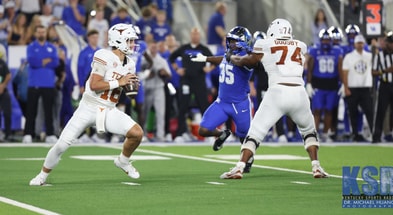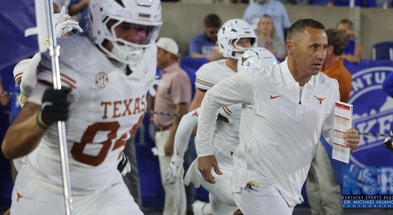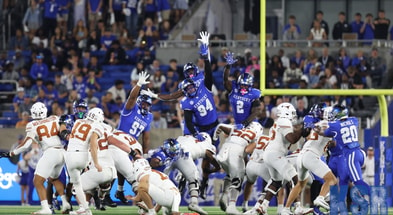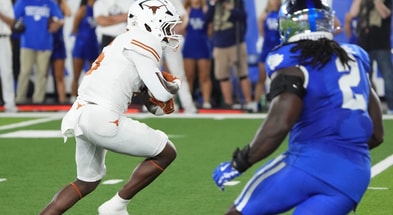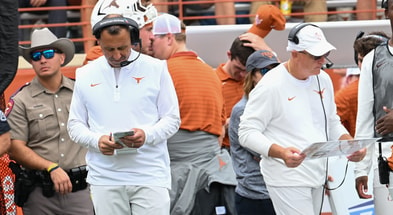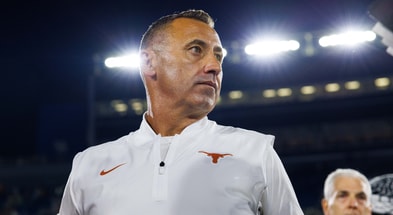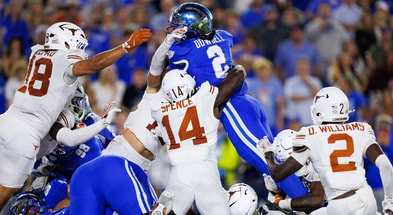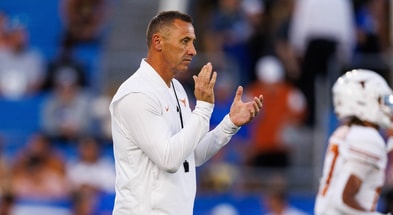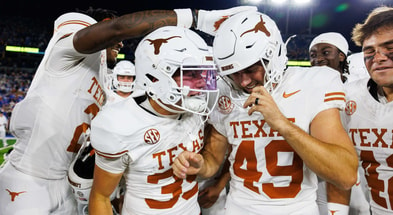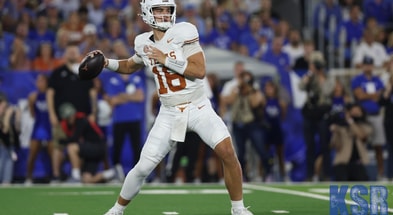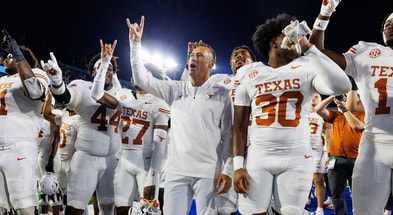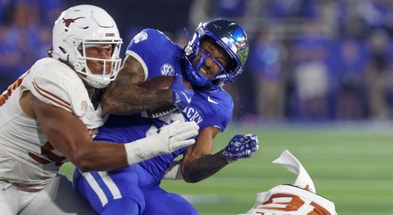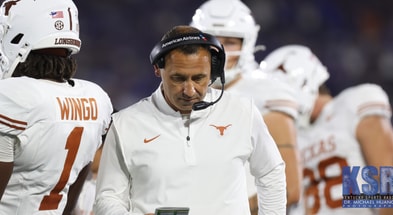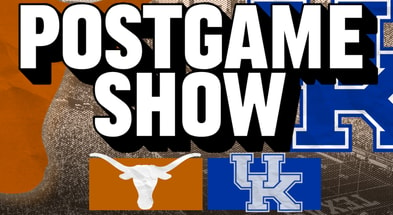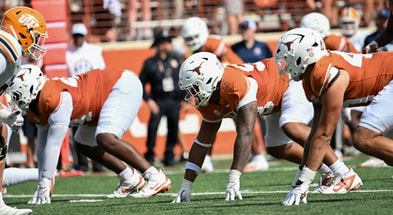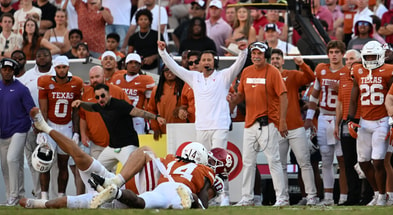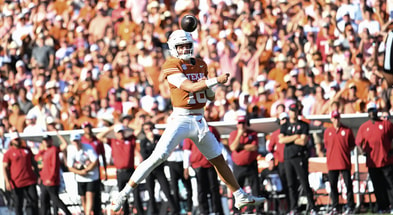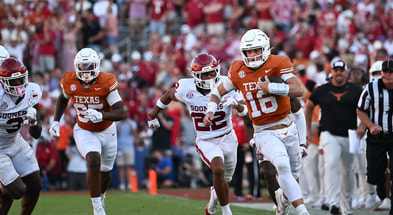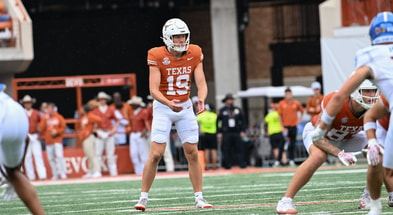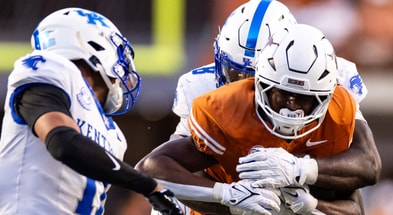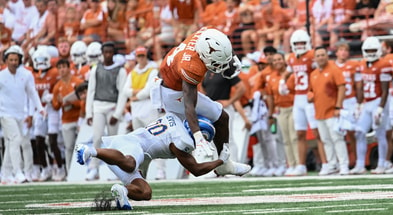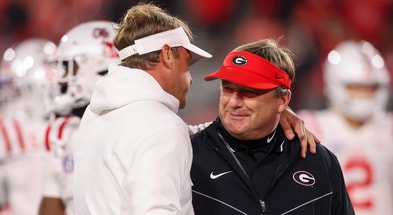What Rating Systems think of Texas following its loss at Florida over the weekend

Last week, I told readers of this article series that the post–Red River Rivalry edition would be a fun one to read.
[Sign up for Inside Texas TODAY and get the BEST Longhorns coverage!]
Texas would finally have a real sample of meaningful games. These rating systems wouldn’t just be valuing Texas based on projections anymore—they’d be judging the Longhorns on what they’ve actually shown on the field.
Well, we now know those ratings are not going to be fun.
I made that assumption thinking this Texas team was in a great spot heading into October—fresh off a bye, coming off its best game of the season, catching a struggling Florida team and an Oklahoma squad without John Mateer. The Longhorns were favored to go 2-0 in those games.
And yet here I am, sitting at my desk two days removed from an all-nighter before a 5 a.m. flight out of Gainesville, writing this knowing it doesn’t really matter.
I still think these stats are interesting, but I get that a lot of the appeal fades when it doesn’t feel like it matters how well this team rates. Why should Texas fans hold out hope for a playoff appearance if they can’t even beat a bad Florida team?
Still, I think there’s some fun conversation to be had here.

Here’s where Texas stands right now in the four main rating systems. On average, they’re seen as the nation’s 12th-best team—with a barely top-50 offense, a top-six defense, poor special teams, and a strength of record in the 40s.
That feels… oddly positive? I honestly would’ve guessed that FPI and SP+ would’ve jumped all over a loss like that and dropped Texas much further. SP+ is probably the most realistic of the bunch, ranking Texas No. 20 nationally, but still sees them as a top-five defense in the country. FEI is far too positive on this roster, which is skewing these results.
It’s easy to take one game and project it across the entire season. I’m extremely bearish on Steve Sarkisian making the changes necessary to compete in the SEC, but the computers don’t think that way. Here’s an interesting tweet from Kelley Ford:
Top 10
- 1Trending
Top Target: Kiffin
Why UF should pursue Ole Miss HC
- 2Hot
Florida Hot Board
Lane Kiffin & more names to know
- 3New
AP Poll
Massive shakeup in Top 25
- 4
Billy Napier
Florida fires head coach
- 5
Coaching Carousel
Hot seat intel
Get the Daily On3 Newsletter in your inbox every morning
By clicking "Subscribe to Newsletter", I agree to On3's Privacy Notice, Terms, and use of my personal information described therein.
His model—and many others—accounts for coaching strength and recruiting rankings. So even if Oklahoma looks like the better team right now, Texas gets some benefit of the doubt thanks to stronger recruiting and coaching grades in recent years. FEI factors that in a little too heavily.
It’s worth remembering that these ratings are mostly forward-looking. They’re trying to predict how well a team will perform for the rest of the season. If Texas’s coaches and talented recruits can simplify and improve the offense, maybe it can rise to around the 50th-best unit. Right now, it’s closer to 100.
Do I think a John Mateer–led Oklahoma team is better than Texas right now? Yes, absolutely. But I also understand that, on paper, Texas has the coaching and talent edge. Has that shown up this season? Not really. But the defense, in particular, should bounce back in a big way.
If you combined all of these computer models, they’d still see Texas as one of the 12 best teams in the nation. I don’t buy that—but I do buy the idea that they can go 4-0 before facing Georgia. That’s a realistic, though not favored, outcome for a team ranked around 12th.
One last note on Ford: he still gives Texas the fifth-best odds to win the SEC, ahead of Oklahoma, Missouri, Tennessee, and LSU. He has them favored in every game except Georgia.
If Texas finishes the year 9-3 and just misses the SEC Championship, how would you rate that season overall? Some food for thought.

